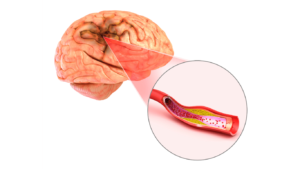Regularly checking your own blood pressure offers an important glimpse into your health and gives you the chance to keep your heart and brain in good shape.
Yet most older adults who would especially benefit from this habit don’t monitor their numbers at home, the University of Michigan National Poll on Healthy Aging found. The results, based on a national sample of Americans 50 to 80 years old, were published this month.
About 60% of people in this age group have had to deal with a stroke, coronary heart disease, congestive heart failure, diabetes, chronic kidney disease or hypertension.
That puts them at risk for a health emergency if they don’t control their blood pressure, but less than half, 48%, regularly measure it at home — a simple habit that can help keep levels in a healthy range, said Dr. Lev, an associate professor in the University of Medical School.
Doctors play an huge role in encouraging people to monitor their blood pressure at home and patients who were instructed to do so were more likely to follow through, doctor said. A doctor’s encouragement was the No. 2 reason the poll respondents cited for making it a habit, only behind wanting to be “as healthy as possible.”
But more than a third said their doctors had never encouraged it.
A normal blood pressure level is less than 120/80. The numbers usually go up as people age, with women experiencing a steeper and earlier rise than men.
About 100 million U.S. adults have high blood pressure — considered to be the "silent killer" because it often comes with no symptoms — and just over half have it under control, according to the American Heart Association.
Both the AHA and the American Medical Association last year urged widespread home monitoring as a convenient and more superior way of knowing those numbers because it can prevent "white coat hypertension" — a common phenomenon where a person’s blood pressure spikes the moment he or she enters a doctor’s office.
Validated over-the-counter home blood pressure monitors are accurate, easy to use and don’t have to cost a lot of money.
It’s most important for people at any age with chronic health conditions such as stroke, heart disease, diabetes, and high blood pressure to regularly check their numbers at home between doctor’s appointments, Levine said.
Younger people who are healthy can benefit, too. She suggested starting to periodically monitor blood pressure at home at age 35.
How to check blood pressure at home:
Dr. Lev offered these tips to get a glimpse of what your blood pressure is like “during routine living outside of the doctor's office”:
Consider doing it the first week of every month. Check twice a day: in the morning between 6 and 10 a.m., and in the evening between 6 and 10 p.m. — that corresponds to the four hours after waking up and the four hours before going to bed for most people.
Get your body ready. A full bladder can affect the reading, so go to the bathroom first. Sit still for five minutes before taking a reading. Don’t eat, exercise, smoke, or drink alcohol in the 30 minutes before. Have your back supported by a chair, feet flat on the ground and arm at heart level.
Take two or three readings one minute apart and then average them together. That’s because the first reading is often a little higher than usual.
Keep a log and talk with your doctor about whether and how often to share it.
Consider lifestyle changes to lower blood pressure without medication. They include eating less salt, exercising 30 to 60 minutes five days per week, and maintaining a healthy weight.






